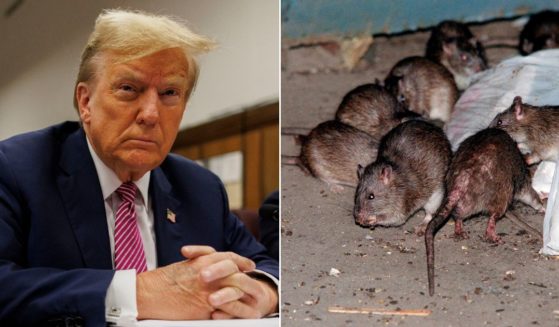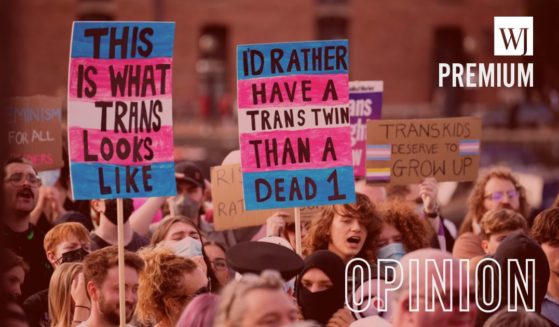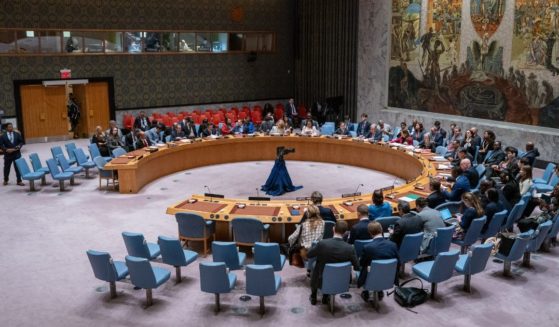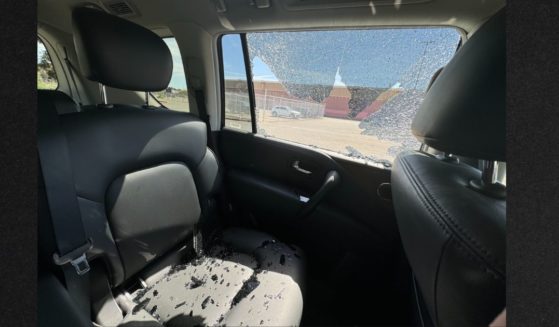Op-Ed: Why China's Wining and Dining of Elon Musk Could Be a Big Problem
It takes a lot to try to wine and dine the world’s richest man, but the Chinese are making the most of it with their courtship of Elon Musk.
They’ve lavished at least $1.6 billion in government-backed loans on his various enterprises. They’ve feted him at dinners. In two days after Musk arrived in China to break ground on a Tesla plant, he went from meeting with local dignitaries to visiting with a vice premier in a private compound used only for meetings with the highest-level officials.
Recently, the Chinese Communist Party made him the first non-Chinese to be published in China Cyberspace, the scholarly journal/communications outlet for the Cyberspace Administration of China that generally focuses on regulatory announcements and internet policy.
His topic — predicting a bright future for space exploration, artificial intelligence and sustainable energy — was anodyne enough. But writing for a journal that serves the regime’s internet censorship agency has raised eyebrows in what is thought — perhaps improperly — to be his present home country.
In addition to his current Tesla plant, which operates near concentration camps where the CCP holds Uyghurs, raising the ire of human rights activists worldwide, Musk has announced another to be built in Shanghai that will more than double Tesla’s production capacity in China.
Musk is attractive to the Chinese for a variety of reasons. He operates in fields that figure to grow and remain vibrant job creators in coming years — solar energy, electric cars and space exploration. But that’s not all they have in common.
All depend significantly on government subsidies, whether in China or here in the U.S. And all afford opportunities for espionage as the CCP continues to try to steal U.S. technology. The danger is most acute in space exploration — Musk’s participation in the U.S. space program has enabled him to receive classified information from the government. But that is not the only threat.
According to the New York Post, Musk’s dealings in China also have raised concerns about the Chinese government potentially obtaining classified information through third parties, such as SpaceX and Tesla suppliers based in China.
That’s a lot to police, and Musk doesn’t seem concerned about the impressions he leaves. He has wished the CCP happy birthday on Twitter and said on numerous occasions how much he loves the country and loves doing business there.
But some U.S. policymakers have become concerned.
Republican Rep. Chris Stewart of Utah has asked for closed-door briefings for Musk to detail his connections to China and what access the Chinese might have to classified information or research.
“I am a fan of Elon Musk and SpaceX, but anyone would be concerned if there are financial entanglements with China,” Stewart said. “Congress doesn’t have good eyes on this.”
On the Senate side, Marco Rubio has become concerned as well. He has criticized Musk for ignoring the genocide against the Uyghurs and accused “nationless corporations” — including Musk’s — of “helping the Chinee cover up genocide and slave labor in the region.”
Rubio has proposed the Space Protection of American Command and Enterprise Act, which would prevent NASA and other federal agencies involved with the space program from awarding federal contracts to CCP-backed firms.
Rubio’s legislation follows calls from former Republican Sen. Cory Gardner, before he left office, to look at all U.S. defense or security-related contracts to determine involvement by the Chinese, if any, and to weigh Chinese involvement in firms that apply for sensitive contracts.
And if Republicans take control of Congress, as seems increasingly likely, Musk will likely find himself before committees explaining these relationships.
It’s not about putting Musk out of business. But he does operate in businesses that are ripe for espionage, and some concern is warranted.
We don’t know how vulnerable Musk is to all this wining and dining. He had said emphatically that he would not open Tesla plants in China, and he’ll soon have two — financed with $1.6 billion in Chinese government loans.
Congress owes it to the country to find out.
The views expressed in this opinion article are those of their author and are not necessarily either shared or endorsed by the owners of this website. If you are interested in contributing an Op-Ed to The Western Journal, you can learn about our submission guidelines and process here.
Truth and Accuracy
We are committed to truth and accuracy in all of our journalism. Read our editorial standards.












